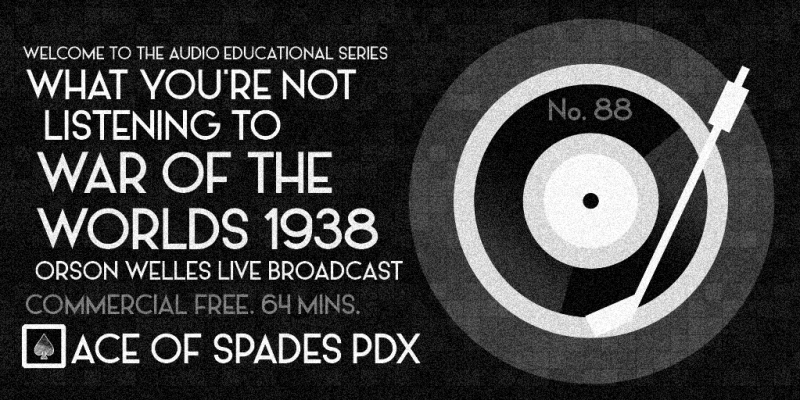Podcast: Play in new window | Download | Embed
Orson Wells proved to the world he was a media genius without limits with a radio broadcast of War of the Worlds that literally shocked many and even drew the ire of a dictator. #orsonwelles #waroftheworlds #radio #mercurytheater
Fake news existed prior to the Trump administration. It was preceded by William Randolph Hearst, who actually got the United States into a war with Spain. Arguably, its most famous figure was that of Orson Welles.
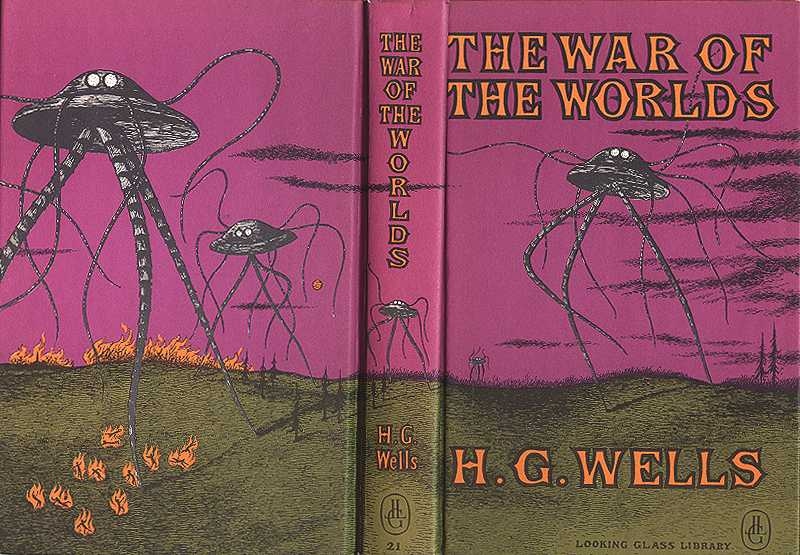
Welles was already an established and celebrated theatre and radio producer by 1938, and decided to do something unheard of for the medium: create a live radio broadcast for the CBS network for Halloween of that year that was set up like regular news programming. Welles was already a successful risk taker, even producing an all-Black cast for a national touring Shakespeare play, a first.
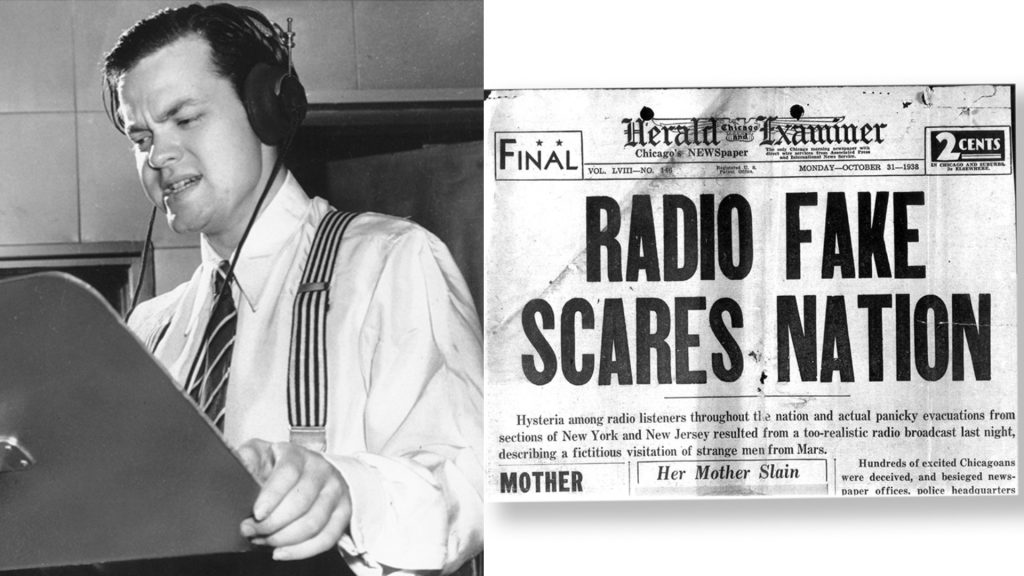
The cast of the Mercury Players, which would include actors he would work with for years, were considered the best in the business. Almost all of them got their start in theatre productions. Many of the actors in the Worlds broadcast played multiple roles, including Ray Collins, Paul Stewart and William Alland.
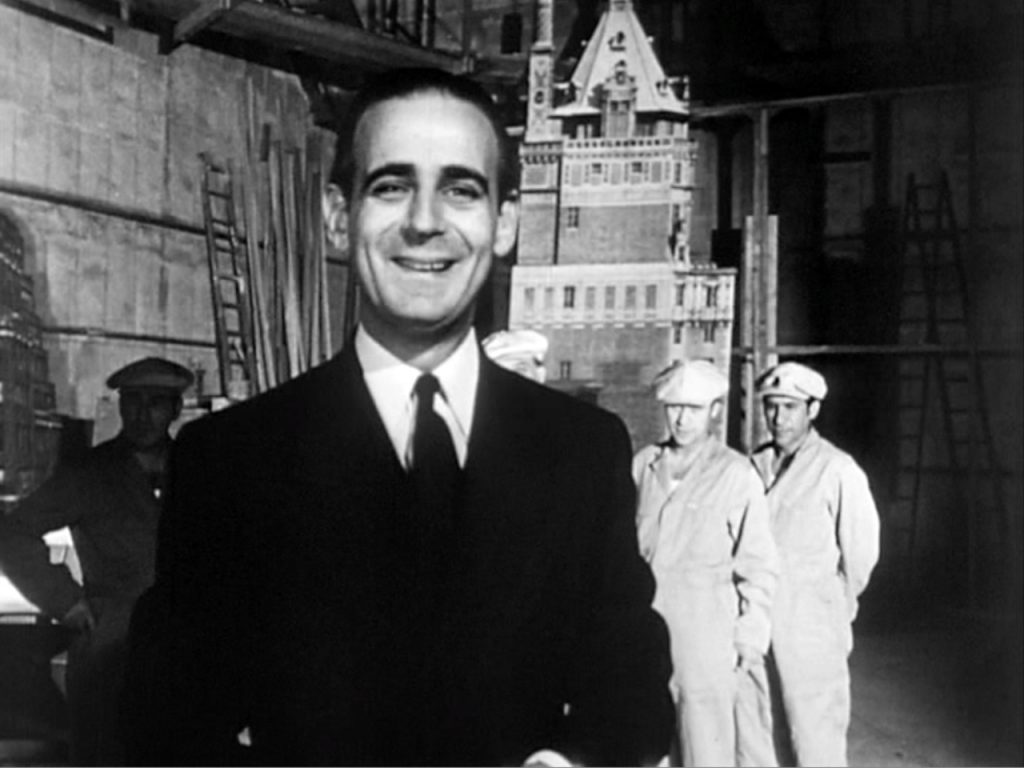
Welles only wanted the best, and he got it, even if he had to pay it out of his own pocket, which he did regularly. For War of the Worlds, based upon the H.G. Wells science fiction classic, not only were the top notch team of the Mercury Players present, but so was Bernard Hermann and his orchestra, a man who’s name would later become synonymous with Alfred Hitchcock films, particularly Psycho.
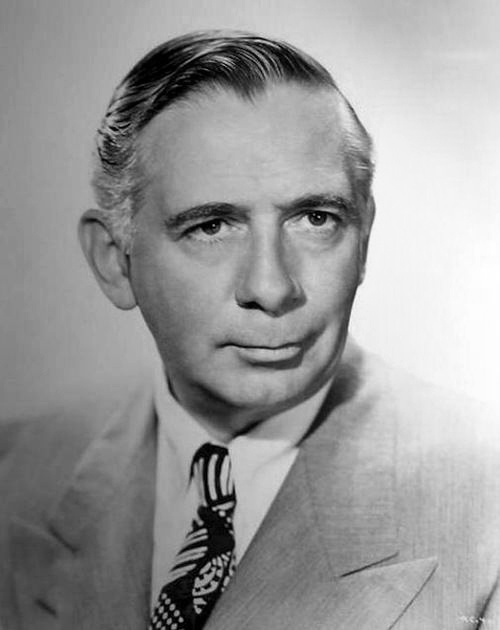
Much has been said or disproven about the number of people who thought that the radio play was real or not. Set up like a news broadcast, it did play on the fears of a looming war with Nazi Germany. Even if conservative estimates are to be believed, approximately one and half million people at the time thought it was real, and mind you, the population of the U.S. in 1938 was less than half of what it is today.
“You don’t play murder in soft words.”
orson Welles responding to criticism about his radio broadcast
Even Adolf Hitler, in a radio broadcast in early November, about a week after the show, denounced Welles, CBS and the program for inciting panic. Welles, who for years worked tirelessly to help the U.S. war effort, was more than amused he upset the dictator so much.
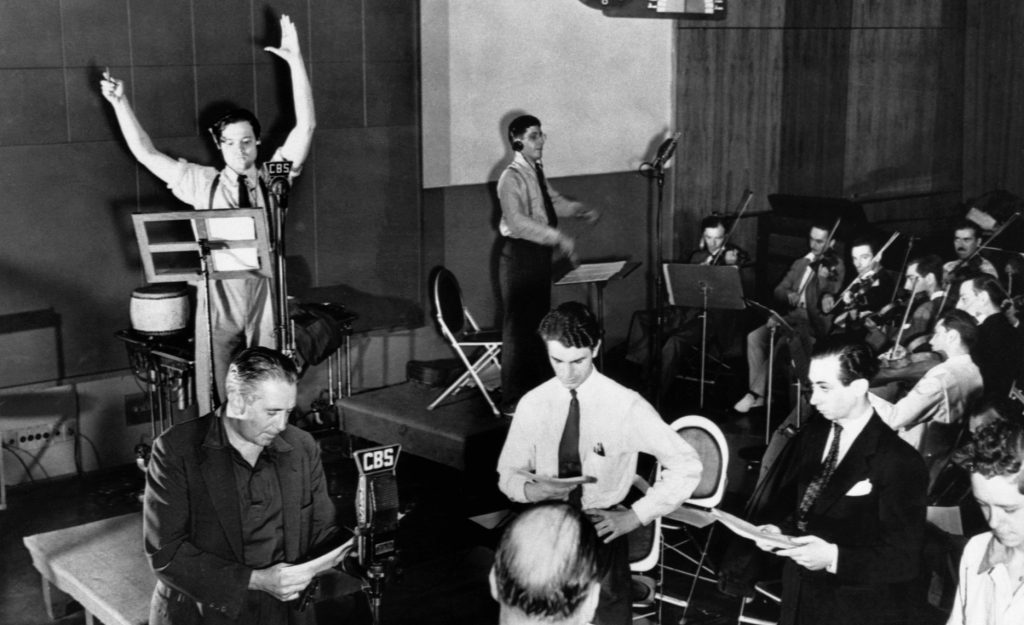
Even though the program made Welles one of the most influential players in radio, not everyone received the same treatment after the broadcast. Screenwriter Howard Koch, the man responsible for setting up the influential news format of the program, did win an Oscar for his work on Casablanca. (“We’ll always have Paris” is him.) However, he was blacklisted during the McCarthy Hearings and the Red Scare of the early 1950’s, and for years could only find work overseas using a pseudonym. Welles often disputed Koch’s involvement in War of the Worlds, which took years of legal wrangling to correct.
William Alland, an Air Force veteran, fared much better, becoming one of the top producers of sci-fi and monster flicks during the 50’s and 60’s, but somehow was spared the same fate as Koch, even though Alland was at one time a registered Communist Party member.
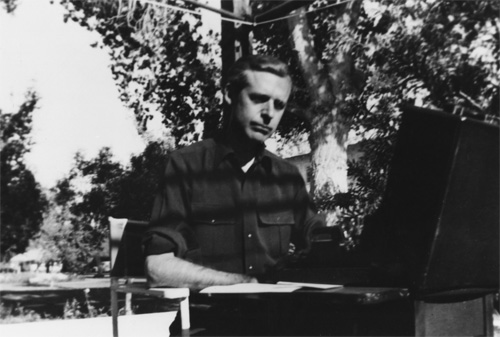
Of course, Welles would go on for several years as a stage and film producer, notably with the drama The Magnificent Ambersons, the film noir classic A Touch of Evil and of course, the monolith that is Citizen Kane. His decline in Hollywood was well documented, as he was often at loggerheads with studio bosses, resulting in over a dozen unfinished film projects, leaving him to make ends meet by doing voice work, including one of his last roles as a planet eating robot unicorn in the 1986 film Transformers: The Movie. I can’t even make this up.
But, for a time, there was no stopping the young wunderkind and his restless ambition.
Mercury Theater Players on this program (in order of appearance)
- Announcer … Dan Seymour
- Narrator … Orson Welles
- First studio announcer … Paul Stewart
- Meridian Room announcer … William Alland
- Reporter Carl Phillips … Frank Readick
- Professor Richard Pierson … Orson Welles
- Second studio announcer … Carl Frank
- Mr. Wilmuth … Ray Collins
- Policeman at Wilmuth farm … Kenny Delmar
- Brigadier General Montgomery Smith … Richard Wilson
- Mr. Harry McDonald, vice president in charge of radio operations … Ray Collins
- Captain Lansing of the Signal Corps … Kenny Delmar
- Third studio announcer … Paul Stewart
- Secretary of the Interior … Kenny Delmar
- 22nd Field Artillery Officer … Richard Wilson
- Field artillery gunner … William Alland
- Field artillery observer … Stefan Schnabel
- Lieutenant Voght, bombing commander … Howard Smith
- Bayonne radio operator … Kenny Delmar
- Langham Field radio operator … Richard Wilson
- Newark radio operator … William Herz
- 2X2L radio operator … Frank Readick
- 8X3R radio operator … William Herz
- Fourth studio announcer, from roof of Broadcasting Building … Ray Collins
- Fascist stranger … Carl Frank
- Himself … Orson Welles
Love to you all.
Ben “Daddy Ben Bear” Brown Jr.
Host, Show Producer, Webmaster, Audio Engineer, Researcher, Video Promo Producer and Writer
“Copyright Disclaimer Under Section 107 of the Copyright Act 1976, allowance is made for ‘fair use’ for purposes such as criticism, comment, news reporting, teaching, scholarship, and research. Fair use is a use permitted by copyright statute that might otherwise be infringing. Non-profit, educational or personal use tips the balance in favor of fair use.”
